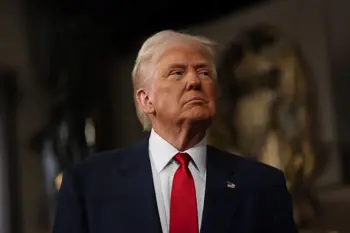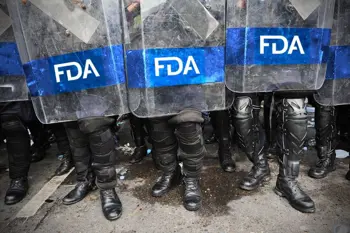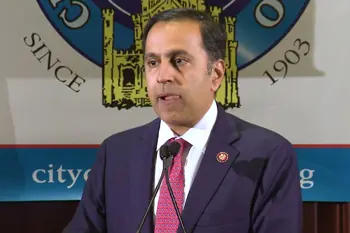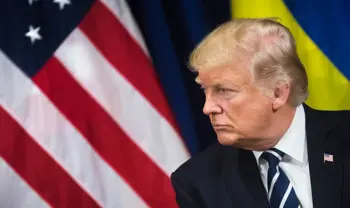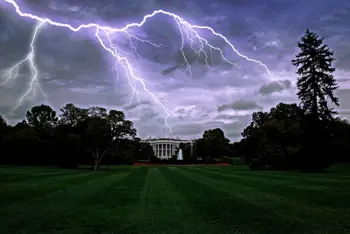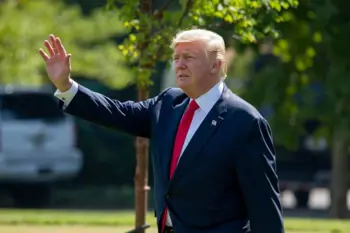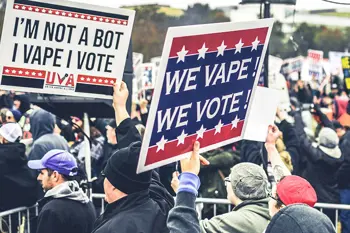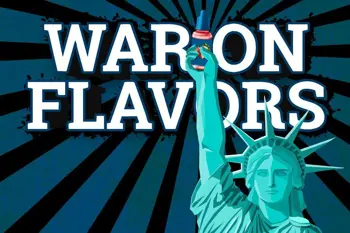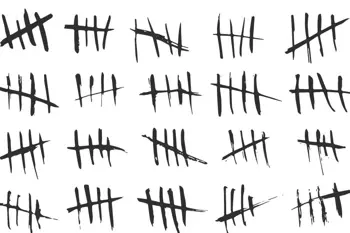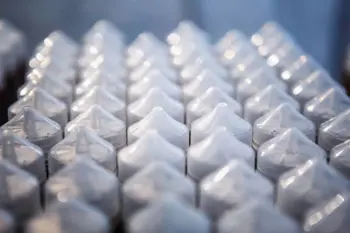Recent comments from Trump administration health officials have added to confusion over President Trump’s policy on vaping and nicotine. While Health and Human Services (HHS) Secretary Robert F. Kennedy Jr. this week promised “fast-tracked approvals" of vaping products, his subordinate leading the FDA has shown no apparent interest in carrying out such a plan, and urged that the FDA’s war against “illegal products” be expanded to vape shops.
At this point, many in the independent vaping industry who believed in and supported Trump are quietly questioning whether the President intends to keep his campaign promise to “save vaping.”
Promises made, promises on hold?
During the stretch run of his 2024 presidential campaign, Donald Trump met with Vapor Technology Association (VTA) executive director Tony Abboud, and followed the meeting with a Sept. 20 post on his Truth Social platform:
“I saved Flavored Vaping in 2019, and it greatly helped people get off smoking,” Trump said. “I raised the age to 21, keeping it away from the ‘kids.’ Kamala and Joe want everything banned, killing small businesses all over the Country. I’ll save Vaping again!”
Abboud’s organization represents vaping manufacturers, distributors and retailers that make and sell American-made e-liquids and Chinese refillable vaping devices and disposable vapes.
At the same time he made the promise to save vaping, Trump’s campaign was accepting millions in contributions from tobacco companies determined to take control of the American vaping market and wipe out independent industry competitors like the VTA members.
Big Tobacco opens its big wallet
Cigarette (and Vuse vape) manufacturer R.J. Reynolds donated $10 million to the Trump-allied Make America Great Again super PAC, making Reynolds the single largest corporate contributor to the Trump political action committee. The New York Times reported that Reynolds executives and a lobbyist met multiple times with Trump before the election.
Of the nine currently available FDA-authorized e-liquid-based vape devices, eight are made by Big Tobacco-owned companies. Only Juul Labs is independent of the tobacco industry. The FDA has never authorized an open-system (refillable) vape product, a bottled e-liquid, or a product in a flavor other than tobacco or menthol.
The tobacco industry sees flavored products as a threat to its century-long monopoly on the nicotine business. And that’s correct. Since the rise of vaping, cigarette sales have fallen precipitously. And the most effective competitors to cigarettes have been the ubiquitous flavored disposable vapes that have taken over the market since Trump’s FDA banned pod refills in flavors other than tobacco and menthol in 2020.
For the last few years, tobacco companies have pulled out all the stops to slow the growth of these easy-to-use devices that are available in thousands of flavors. Smear campaigns against “illegal Chinese vapes” have become a cottage industry, and the tobacco giants have also filed lawsuits and unfair trade complaints, lobbied for federal legislation, threatened small retailers, and spent tens of millions (or maybe more) to get state “registry” bills passed in tobacco-friendly legislatures that protect tobacco industry products from the foreign vape interlopers.
The Trump administration has been swamped with lobbying and influence campaigns aimed at “illegal Chinese vapes.” Much of the noise is coming from political allies and social media “influencers” paid by shady groups probably hired by the tobacco industry.
To save vaping, the FDA must reorient the vape authorization process to acknowledge the widespread popularity of vaping, its benefits, and the agency’s responsibility to regulate and not prohibit or impede it.
The VTA—and Tony Abboud specifically—has been targeted as some kind of Chinese Communist Party (CCP) tool, supposedly paid dirty money to compromise red-blooded American children by tricking them into consuming addictive and possibly poisonous Chinese vapes.
Abboud is, according to rabid Trump influencer Laura Loomer, “a career Democrat lobbyist who has ties to the CCP.” That post, which also attacked longtime vape industry advocate Gregory Conley, was based on a ridiculous hit piece published on the Fox News website.
The tobacco companies have carried out major operations to convince the Trump administration that the only good Chinese vape is a dead Chinese vape—and that goes for small e-liquid manufacturers too, as far as the tobacco companies are concerned. So far, it looks like the Trump health agencies are listening, along with Republicans in state legislatures—and Congress too.
Since taking office, Trump has done little to suggest he intends to keep his promise to protect American vaping consumers and industry from ban-happy regulators. Rather, his administration has delivered lots of what his Big Tobacco campaign donors want: FDA decisions and enforcement actions to keep cigarettes and tobacco industry vapes available, while further crippling the independent vaping industry.
Legislation that would force the FDA Center for Tobacco Products (CTP) to spend nearly 30 percent of its $700 million 2026 budget on vaping product enforcement has been inserted into the Senate version of the agricultural/FDA appropriations bill. Tobacco Insider reports that Marlboro (and NJOY vape) manufacturer Altria Group lobbied heavily for the language.
The VTA, whose meeting with Trump precipitated his campaign promise to save vaping, is now spending its war chest to run ad campaigns aimed at convincing the Trump administration to do what the President promised he would do.
More promises from HHS Secretary Kennedy
Earlier this week, HHS Sec. Robert Kennedy told a Brazilian reporter there are two issues to consider with vaping. “One is the Chinese vapes, which are directed toward children. They’re very bright colors and cotton candy flavors; they are often accompanied by video games or other forms of entertainment that are directed toward children. And we’re very worried about those, and we’re now doing a crackdown on them nationwide. It’s the first crackdown we’ve ever had on them, but we’re being very aggressive about that.”
Well, the crackdown part is true. The FDA and its partner agencies in the federal vaping product task force have been eagerly intercepting shipments of unauthorized disposable vapes—and every other kind of vape product too—at borders. The flavors and child marketing nonsense we’re kind of immune to by now.
“At the same time,” Kennedy continued, “we are fast-tracking approval of vapes that don’t do that.”
That’s very exciting, but hang on for a minute. Doesn’t it sound familiar?
In January 2020, Trump’s first HHS secretary, Alex Azar, assured a radio interviewer that the first Trump FDA would “streamline approval” for small vape businesses. He brushed away any concerns that the premarket tobacco application (PMTA) process would wipe out the independent industry.
That promise was never kept, of course, and the FDA ultimatelyrefused to accept or denied millions of PMTAs without conducting any serious review. Will it be different this time? Forgive me for being skeptical, but I’ll believe it when I see it.
Kennedy went on to correctly explain that “vapes don’t burn tobacco, and nicotine itself does not cause cancer. It may in fact have some health benefits. It’s infinitely preferential to smoking. I think the nicotine pouches are probably the safest way to consume nicotine. Vapes are second. But the thing we really want to get away from is cigarettes.”
Can you tell one FDA commissioner from another?
Martin Makary offered a preview of his actions as FDA commissioner during a March 6 Senate committee confirmation hearing. In his answer to a question from freshman Florida Senator Ashley Moody about “illegal Chinese vapes,” Makary echoed the beliefs of every clueless vape prohibitionist who has held a public health job for the past 15 years.
“We are being flooded with Chinese [vaping] products,” Makary told the senator. “We have no idea what’s in these products, and public health isn’t even going to be able to study them because it takes so long for public health research to catch up….
“There are a few things the FDA can do to try to address this problem,” he told Moody. “First of all, the Office of Inspections and Investigation has a lot of people with guns, and they do enforcement and raids, and we need—in collaboration with [the Department of Justice] and other areas of law enforcement—to try to address this problem of illegal products on our market.”
It hasn’t gotten better since Makary’s Senateconfirmation. He has proven he doesn’t understand the issues involved, and appears to have chosen the same contemptuous anti-vape posture adopted by his predecessor Robert Califf. In fact, he has probably been worse for American vape consumers than Califf.
Makary has leaned on the agency’s enforcement levers, essentially shutting down the flow of vaping products into the country. While the FDA has continued the Biden-era trend of issuing press releases to brag about seizures of “illicit Chinese disposable vapes,” FDA border officials and Customs police are now also turning away or snatching shipments of refillable open-system products, including replacement pods and coils.
Basically all vaping devices are made in China. Without them, consumers of American-made e-liquid would be unable to vape. Open-system Chinese vapes are not a threat to the American vape industry—unless you’re R.J. Reynolds or Altria.
Along with product seizures, the CTP has continued to issue marketing denial orders (MDOs), rejecting PMTAs and ordering manufacturers to remove established e-liquid products from vape shop shelves. Since Trump’s inauguration, 33 small American manufacturers have received MDOs.
Before the FDA began enforcing against Deeming Rule violators in 2021, vape shop customers had a wide selection of refillable devices and bottled e-liquids to choose from, and shops prospered and multiplied, serving millions of ex-smokers.
Makary has also used his public health leadership pulpit to misinform and even lie about the dangers of vaping and its prevalence among youth—including those from “good families,” which is a dog whistle aimed at suburban parents.
“There are high schools in America now where kids are saying half of the kids are addicted to these vaping products,” Makary tweeted in May. “We cannot get burned again like we did on opioids.”
“I personally have observed kids from good families who have become addicted to vaping,” Makary added in another post. “They know they’re addicted, they want to stop, and they can’t stop.”
This week, both Makary and Kennedy have spoken about the danger of products containing 7-hydroxymitragynine (7-OH), the psychoactive compound in the kratom plant. Both officials insist 7-OH must be classified as a Schedule I narcotic. But Makary—in all his communications about 7-OH, including a New York Post opinion piece—insists on tying the (still legal) substance to vape shops in the slimiest Califf-like way.
Makary has a real problem with vape shops, despite the fact that very few of the vape products sold to minors come from vape shops. “It’s time to take action on illegal products sold in vape shops popping up in every neighborhood in America, harming our nation’s children,” he wrote on July 29. He tweeted that the same day his Post article was published, but apparently he was referring not to 7-OH but the hated Chinese vapes.
Makary—like all FDA leaders except Scott Gottlieb—has no idea what a real vape shop is, or who it serves. He never will either, because he doesn’t care enough to investigate. For him, “vape shop” is simply an insult to be hurled to stigmatize vaping, which is practiced by people he has no respect for.
Before the FDA began enforcing against Deeming Rule violators in 2021, vape shop customers had a wide selection of refillable devices and bottled e-liquids to choose from, and shops prospered and multiplied, serving millions of ex-smokers. Since that time, the FDA’s ham-handed “regulation” has warped the vaping product market into a funhouse mirror reflection of what it could and should be.
Will Trump keep his promise?
The Trump administration did one good thing for vaping: it fired former CTP director Brian King (who was quickly hired by vape prohibition group the Campaign for Tobacco-Free Kids). But instead of replacing incompetent ideologue King with a thoughtful and reasonable leader able to implement much-needed nicotine product regulatory reform, Makary and his bosses appointed an acting director, Bret Koplow, an FDA careerist who most recently worked in Califf’s office.
The CTP under Makary also issued marketing authorizations for the JUUL and its refill pods. But that authorization has been done for years, and just waiting for someone at the FDA willing to bear the shame of receiving the mean letter from Sen. Dick Durbin that was sure to follow.
For Trump to actually make good on his promise to save vaping, his FDA commissioner will have to lead a massive shakeup of the CTP. To save vaping, the FDA must reorient the vape authorization process to acknowledge the widespread popularity of vaping, its benefits, and the agency’s responsibility to regulate and not prohibit or impede it.
It’s almost impossible to imagine Makary leading such an effort. At this point, he seems exactly like a Robert Califf clone, willfully ignorant of the subject, with nothing but contempt for the vaping products and businesses he is charged with regulating—and the people who use them.
The CTP seems to be chugging along much as it did under President Biden—using the same deceptive words, wielding the same clunky enforcement tools, and propping up the same (slowly) declining tobacco companies.
If Trump plans on saving vaping, he’s going to have to start by insisting his own FDA not undermine his promise. That could mean dumping Martin Makary, or at least appointing a courageous and far-sighted CTP director, and ordering Makary to keep his hands off nicotine regulation and stick to the drug and device side of the agency.
Saving vaping also means standing up to the tobacco companies, even when they pour millions into campaigns that pay Trump allies to tie the vaping industry to China.
Trump’s promise to save vaping means everything to the small manufacturers and vape shops that make up the U.S. independent industry. Does it mean anything to Trump?
